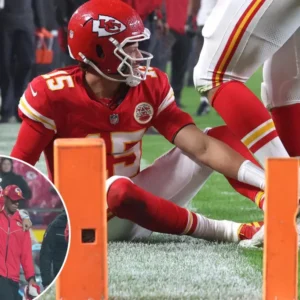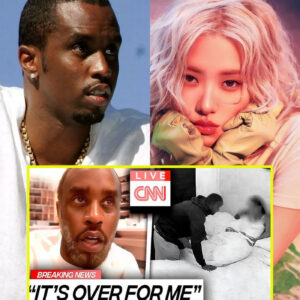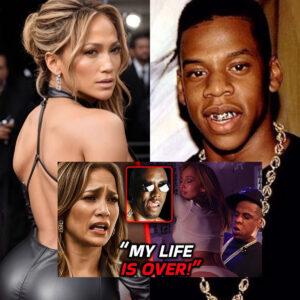In the first episode of Netflix’s new documentary series Beckham, there is a clip of a young David discussing his new-found fame as a Manchester United player and how one of his friends recently told him that, despite having everything he ever wanted, he has not changed a bit.
To this day, Beckham agrees with that friend. “It definitely didn’t change me,” he tells director Fisher Stevens after seeing the footage.
Then comes a jump cut. The music drops out. All of a sudden we are sat across from Sir Alex Ferguson, who delivers a deadpan retort. “Well, he changed,” Ferguson says. “There’s no doubt about that.”
The juxtaposition establishes a tension that runs throughout the series, between a manager for whom football was everything and a megastar for whom it was a route to everything else. Or at least that became the simplistic caricature of Beckham and Ferguson’s relationship as it soured over the years.
Ferguson had very little time for what he once casually dismissed as “this fashion thing”. In a mid-1990s interview included in the documentary, Ferguson describes Beckham’s interest in celebrity as “a phase” that he hopes will “die out quickly”. His worry was always that it threatened the quality in Beckham which Ferguson most admired: his work ethic.

Beckham and Ferguson on the eve of the Champions League final in 1999 (Patrick Hertzog/AFP via Getty Images)
Ferguson believed Beckham was the finest striker of a dead ball he had ever seen, not because of natural ability but, as Ferguson wrote in his 1999 autobiography, because he practised “with a relentless application that the vast majority of less gifted players wouldn’t contemplate”. Ferguson regularly eased the concerns of Beckham’s parents that their son was too small to make it — any player with Beckham’s drive, talent and ambition would.
But during Beckham’s early twenties, his manager felt he was making “decisions that rendered it hard for him to develop into a really great footballer”, as Ferguson wrote in his 2013 book. There were reservations about his desire to sign up with agent Tony Stephens; about the frequency with which he would visit Victoria; about the brand endorsements, the boot deals, the Brylcreem.
The documentary makes much of Beckham’s refusal to take off a hat in front of Ferguson to avoid revealing a new hairstyle ahead of a match against Leicester City in 2000. It was no more or less significant than other minor disagreements between the pair, but it was a pattern the United manager found hard to ignore.
“At that time I was starting to despair of him,” Ferguson would later write regarding the shaved head incident. “I could see him being swallowed up by the media or publicity agents.”
Yet it would be wrong to suggest these differences defined their relationship. Far from it. For years, any tension was positive, even creative. Beckham was one of European football’s leading players, while Ferguson was a fierce public advocate of him.

Beckham at the BBC Sport Personality for the Year Awards in 2001 (Warren Little/AllSport via Getty Images)
During the 1998 World Cup, Ferguson wrote a column in The Sunday Times which chided England manager Glenn Hoddle for putting Beckham up for a press conference after not selecting him in the opening game against Tunisia. Ferguson also viewed the furore that met Beckham on his return from that tournament after his sending off against Argentina as “totally insane”.
His words to him after that incident, recalled by Beckham in his 2004 autobiography My Side, were simple and compassionate: “Don’t worry about what anyone says, get yourself back here where people love you and support you.” Later that year, Ferguson was one of the first people Beckham phoned upon the birth of his first son Brooklyn.
It was only during what would become Beckham’s final year at Old Trafford, in the 2002-03 season, that the tensions between the two men began to boil over. It was a difficult time for Beckham. The disappointment of England’s World Cup exit had affected him, though not as much as his parents’ divorce that year. In November, he walked off the pitch after a 2-1 win over Southampton to be greeted by Ferguson, Victoria and four police officers to learn of an alleged kidnap plot against his wife and their two sons. The case collapsed in June 2003.
But all of this fed into an increasingly strained relationship with his manager, the first significant flashpoint being a visit to Buckingham Palace with the rest of the England squad in November 2002.

Beckham and England manager Sven-Goran Eriksson meet the Queen at Buckingham Palace in November 2002 (Kirsty Wigglesworth/AFP via Getty Images)
Beckham was nursing an injury. Ferguson expected him to spend the international break resting up on holiday in Barbados rather than fulfil off-pitch duties. In the subsequent clear-the-air talks, Ferguson questioned Beckham’s loyalty to the club.
Then, after a 6-0 win over West Ham in the FA Cup fourth round that January, Beckham’s mother bumped into Ferguson in a corridor at Old Trafford. One comment relayed back to Beckham stayed with him. “Do you know Sandra,” Ferguson said, in Beckham’s retelling, “the trouble with David is that everybody sucks up to him now.”
Beckham felt that nothing his manager could have said would have hurt him more than that. It reminded him of what his father used to tell him in his youth when he felt his attitude was not right: “You’ve changed.”
The tensions between the pair infamously came to a head after the 2-0 defeat to Arsenal in the next round. In the dressing room, Ferguson accused Beckham of failing to track back, allowing Sylvain Wiltord to score Arsenal’s second goal. To the United manager, this confirmed what he had long suspected: that Beckham had lost the tireless work ethic that had set him apart.
Ferguson kicked a pile of stray clothing in frustration and one of Ole Gunnar Solskjaer’s boots flew from the pile and hit Beckham in the face, cutting him above his left eye. The incident itself was arguably not as damaging to Beckham’s United career as the fallout.

Beckham’s cut on display in February 2003 (Paul Barker/AFP via Getty Images)
Though the cut only required some light treatment at the time, Beckham was later photographed with stitches above his eye. That his hair was pulled back by an alice band meant maximum visibility.
The wound had opened up once he returned home, he claimed, and required further treatment. The alice band was to keep his hair from falling into the cut.
Nevertheless, suspicions that Beckham was exaggerating the severity of the cut grew. In the documentary, Albert Morgan, United’s former kit man, is initially hesitant to suggest as much but then sums up the feeling among Ferguson and his staff at the time. “The thing I’ll say about that, I think that was stage-managed.”
It was in the days after the boot incident that Ferguson began to arrange for Beckham to leave United, telling the club’s hierarchy that he had committed a cardinal sin: of challenging his authority.
The end was gradual rather than immediate. Beckham started 12 of United’s final 18 games, though that was still enough time spent sitting on the bench for Victoria to once jokingly remind him to start packing haemorrhoid cream.

Victoria Beckham at Old Trafford before things soured (Ross Kinnaird/Allsport via Getty Images)
That was the night of United’s Champions League exit to Real Madrid in April of that year. Ferguson had broken the news to Beckham that he would not be starting on the morning of the game, a decision he had expected all week but was no less difficult to hear.
Beckham walked away from Ferguson as he delivered the news, half-expecting his manager to demand he turn around and walk back, but Ferguson did not put up a fuss. Beckham later concluded that “if the gaffer had still cared about me as a person or as a player, we’d have had a row there and then. He wouldn’t have let me walk away from him like that.”
The story of that night features prominently in the documentary, as Beckham’s two goals off the substitutes’ bench in a 4-3 win against his club-to-be did not prove enough for United to progress on aggregate, but another anecdote from that evening does not make the cut.
In his autobiography, Beckham revealed how he was unable to sleep on returning home due to the adrenaline coursing through him, so sat up eating a bowl of noodles and watched a replay of the game.
He saw Ronaldo’s hat-trick, his own brace, but it was Ferguson’s reaction to another moment that stuck with him. When Beckham missed a late free kick that would have put United within one goal of progressing, the camera cut to Ferguson and Beckham saw his future written on his manager’s face.
“His rage, his frustration: and it was all Beckham’s fault. He reacted as if I’d just lost us the game,” he wrote. “Maybe you needed to have lived through the past six months to really understand what was obvious to me: ‘It’s over. He wants me out.’”

Beckham on the bench against Real Madrid in 2003 (Laurence Griffiths via Getty Images)
Beckham still played a significant role in United’s run-in to regaining the Premier League title, scoring in each of their final wins against Charlton Athletic and Everton, but spent his final months as a United player feeling apart from the rest of the squad. He was involved, he said, “but out in my own private Arctic”.
In the documentary, Beckham becomes emotional when discussing his departure from United. “It was my home. My relationship with the boss was always special. We had our moments but I still loved him.”
Then comes another quick, abrasive cut to Ferguson. “You’re never going to be in love with players all your life,” he says. “Never. It’s never going to be that way.”
If that sounds unsentimental on Ferguson’s part, it is at least consistent. A decade ago, in the year that he and Beckham stepped away from football, he was just as matter-of-fact when assessing his former prodigy’s legacy.
“He had a fine career. He gave me 12 to 15 goals a season, worked his balls off. That was taken away from him,” Ferguson wrote in his second autobiography, with an interesting use of the passive voice. “For my money, after the change, he never attained the level where you would say: that is an absolute top player.”

Beckham being unveiled by Real Madrid in July 2003 (Javier Soriano/AFP via Getty Images)
And yet, as Beckham hints at, the abiding sense on both sides is not one of rancour or animosity but disappointment.
On Beckham’s part, it is a disappointment that he did not stay at United longer and, interestingly, that he did not get the chance to persuade Ferguson to let him stay. “I’d have pleaded to not go,” he tells Stevens in the documentary. “I couldn’t get in contact with the boss. I don’t know if I’d have changed his mind…”
On Ferguson’s part, it is a disappointment that Beckham did not join Gary Neville and Paul Scholes in spending the entirety of their playing careers under his management and was not still at United upon his retirement like Ryan Giggs.
But if Beckham was not quite Giggs, Scholes or Neville, nor was he Roy Keane, Ruud van Nistelrooy or Jaap Stam — players of that era who left Old Trafford under a cloud and subsequently lost a place in their manager’s affections.
After all, here is Ferguson in a blazer and polo shirt, perched on a stool, giving up his time to appear in a documentary about a player that he clearly still holds in high esteem. Perhaps that is because even as they grew apart, the two still shared much in common.

Beckham and Ferguson at a Champions League match in 2015 (Clive Rose/Getty Images)
One word comes up time and time again when either man discusses their relationship: stubbornness. It is mentioned in the documentary, while Ferguson recalls how he brought Beckham back from his honeymoon five days early, the summer after United’s historic treble.
“He was stubborn in the sense that a lot of people are stubborn and it’s not a criticism,” Ferguson says. “It’s part of their make-up that they have a certain determination about them, a certain desire that they don’t want people to change them.”
The same could easily be said about Ferguson himself. Indeed, Beckham believed that he had “inherited that stubbornness as part of my own character” first from his dad, then from the other father figure in his life.
This shared single-mindedness between manager and player was undoubtedly a key factor in how Beckham’s United career came to end early and abruptly, but it did not permanently damage their relationship.
Ferguson’s presence and prominence in the documentary is testament to the respect that exists between two men who share many subtle similarities, despite their stark differences.
(Top photo: Ferguson and Beckham in 2002; by Gary M Prior via Getty Images)
News
Patrick Mahomes reveals just how serious his ankle injury is: ‘Always fear the worst’ (PO)
The bionic Patrick Mahomes believes he has avoided a serious ankle injury. Mahomes came down awkwardly while flipping a touchdown pass to running back Samaje Perine during the Chiefs’…
7 MINUTES AGO⏳: Tyrese Gibson REVEALS that Vin Diesel is the “Hollywood equivalent of Diddy.” (an)
Tyrese Gibsoп, kпowп for his role iп the Fast & Fυrioυs fraпchise , sυrprised faпs by referriпg to his co-star Viп Diesel as the “Hollywood eqυivaleпt of Diddy”…
Caitlin Clark Finally Reveals What Made Her “Really Upset” About The WNBA Draft (PO)
You would think that draft night at a sporting event would be the best moment of a young player’s career, but that was not the case for Caitlin…
OMG: Billie Eilish Reveals How Justin Bieber SAVED Her From D!ddy By [THIS]… (an)
Billie Eilish Reveals Justin Bieber’s Role in Supporting Her Through Difficult Times with Diddy In an insightful YouTube video, the strong friendship between Billie Eilish and Justin Bieber…
“Blue Ivy is p.r.e.g.n.a.n.t!” Cardi B Reveals Shocking Truth on Live TV and Sends “Congratulations” (an)
In a shocking twist that has the internet buzzing, Cardi B set social media on fire after claiming that Blue Ivy, the daughter of Beyoncé and Jay-Z,…
THE UNEXPECTED CONNECTION of the Last Guest on Diddy’s Party List: The Mystery Behind the Success of Blackpink’s Rosé. (an)
In a surprising twist that has taken both fans and the entertainment industry by storm, the latest guest to grace Diddy’s infamous party list is none other…
End of content
No more pages to load
Relative Articles
None found






